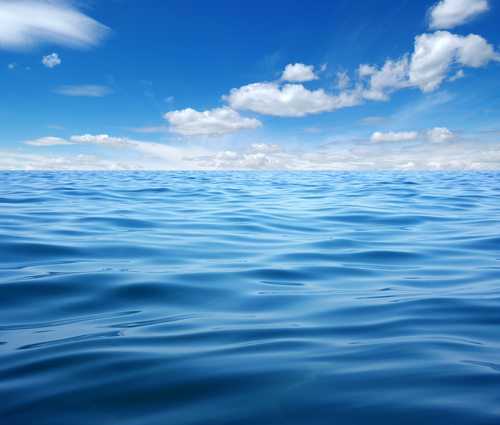Is Swallowing Ocean Water Bad For You?
Also Known As: sea water, salt water
Short answer
Although accidentally swallowing a bit of ocean water shouldn't cause any harm, swallowing large amounts is indeed bad for you. Excessive consumption of salt water can cause severe dehydration.
Category 'F' is for things that fail to bring anything beneficial to the table, and are very harmful to your health. We recommend completely avoiding anything in this category. Long-term side effects of 'F' items are usually very serious.
View Full Grading System
Category 'A'
Very healthy and numerous health benefits. Side effects are rare. Things rated an 'A+' are typically necessary for survival (for example, water).
Very healthy and numerous health benefits. A few harmful qualities may be associated, but only under certain circumstances such as an allergic reaction.
Very healthy and numerous health benefits. Harmful qualities may be associated, but aren't usually serious.
It is important to note that even the best things in life can become bad in immoderate amounts. So, although something may be rated an 'A+', overconsumption/overdoing can bring unwanted effects.
Category 'B'
Very beneficial to your health. Things rated a 'B+' may have a few harmful qualities to pay attention to.
Overall beneficial to your health. Things rated a 'B' may have some harmful qualities to pay attention to.
More beneficial to your health than not. However, harmful qualities are most likely associated and shouldn't be overlooked.
The main difference between category 'A' and category 'B' is the harmful qualities typically present in 'B' items. Serious side effects are usually uncommon, but are still possible and should be taken note of.
Category 'C'
Both beneficial and harmful qualities associated. Things rated a 'C+' are typically a bit more on the beneficial side. Still, moderation is important.
A fairly even ratio of beneficial and harmful qualities. Moderation is important. Very general topics that can lean towards both sides of the spectrum will be placed here as well. Rice, for example, can be good or bad depending on the type.
More harmful than beneficial. Side effects are common, especially when consumed/done excessively. Moderation is very important.
Category 'C' usually denotes to both good and bad qualities. When it comes to this category, it is important to keep this word in mind: moderation.
Category 'D'
Harmful to your health. Although benefits may be associated, the bad most likely outweighs the good. Moderation is very important.
Harmful to your health. A few benefits may be associated, but the bad outweighs the good. Moderation is extremely important.
Harmful to your health. Very few, if any, benefits are present. Things in this category should be avoided as much as possible.
Category 'D' is typically for things that are more harmful than beneficial. While consuming/doing something unhealthy once in a blue moon shouldn't hurt, we definitely recommend eliminating 'D' items as a regular part of your routine/diet.
Category 'F'
Category 'F' is for things that fail to bring anything beneficial to the table, and are very harmful to your health. We recommend completely avoiding anything in this category. Long-term side effects of 'F' items are usually very serious.
Category 'N'
'N' stands for neutral. Things placed into this category are generally (a) neither good nor bad for you, or (b) lack the necessary evidence to reach any conclusions.
Long answer
The human body requires water in order to live. The ocean consists of salt water, which the human body is unable to process for the purpose of hydration. Drinking liquids with high salinity, such as ocean water in small amounts will not cause much harm to the body. Consuming large amounts of ocean water is very hazardous and can cause death.
The concentration of salt in the ocean is 75% greater than that of the human body. Drinking salt water increases the amount of work that the body has to do in order to eliminate it. Seawater dehydrates the body, rather than hydrates. Body functions begin to decrease and suffer because of the lack of water in your system. Side effects of dehydration due to drinking seawater will set in quickly. These side effects include dry mouth and rapid heartbeat. Low blood pressure, dizziness, and headaches are also early signs of dehydration.
If you have consumed a large amount of ocean water, you will experience confusion and become lethargic. Continued consumption of ocean water without any consumption of fresh water to counter the side effects will eventually result in vomiting and unconsciousness. These initial symptoms will worsen if you continue to ingest salt water. Kidney failure will occur once your body can no longer produce urine. Your body needs usable, fresh water in order to produce urine.
Swallowing a small amount of ocean water by accident will make you thirsty, but it is not deadly. However, it should never be consumed at will. In addition to severe dehydration, ocean water can contain industrial pollutants such as hydrocarbon pollution, biological waste, nuclear waste and bacterial plant toxins. These can cause various illnesses, including cancer and radiation poisoning, and can even lead to death.
Possible short-term side effects
- dry mouth
-
increased heart rate
-
low blood pressure
-
headache
-
dizziness
-
confusion
-
lethargy
Possible long-term side effects
- severe dehydration
-
kidney failure
-
unconsciousness
-
death in extreme cases
-
illness associated with pollution
Ingredients to be aware of
- salt
-
over 20,000 kinds of bacteria
-
industrial pollutants
Please turn your Ad Blocker off to see this content. Thank you!
Thank you for your feedback!
Written by DeeAnne Oldham
Published on: 05-04-2016
Last updated: 12-10-2016
Thank you for your feedback!
Written by DeeAnne Oldham
Published on: 05-04-2016
Last updated: 12-10-2016

 Approved by
Approved by 















